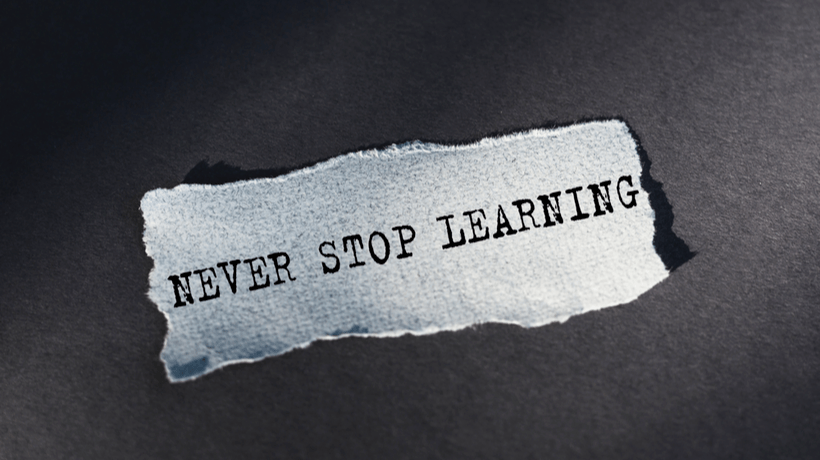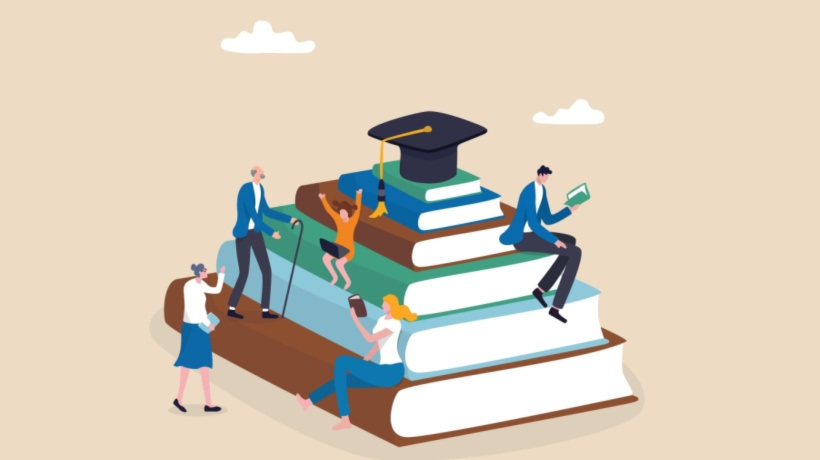Self-Directed Learning: How And Why
As a knowledge worker, my prime responsibility is to invest in myself, which means that keeping myself updated in my field of expertise is a mandate. I do that by continually learning and improving my skills; not doing so would be a disservice to not only myself but also to the organization that I am part of.
Failure to constantly develop myself will have two implications:
- Running the risk of being made irrelevant and becoming obsolete; and,
- Letting down my colleagues/team members who are dependent on my deliverables, thereby becoming less valuable to the organization.
In their book Evidence-Informed Learning Design, Mirjam Neelan and Paul Kirchschner talk about obsolescence. Quoting Thijssen and Walter, they say that obsolescence can come in different shapes and forms, but it is always work-related. The three types of obsolescence and their causes are:
- Technical obsolescence: caused by a lack of or diminishing technical skills.
- Economic obsolescence: when employment shrinks in a particular sector.
- Perspective obsolescence: caused by a person's outdated views and beliefs.
The bottom line is that we are all prone to becoming obsolete, and we need to do whatever it takes to stay ahead of the game.
Who Is A Knowledge Worker?
A knowledge worker is someone who works with information or data and their main capital is knowledge. Peter Drucker is the one who coined the term "knowledge work." In his book The Landmarks of Tomorrow, he explains that "there is coming an age when people would generate value with their minds more than with their muscle." He had become convinced that knowledge was a more crucial economic resource than land, labor, or financial assets, leading to what he called a “post-capitalist society.” And shortly thereafter, Drucker declared that "increasing the productivity of knowledge workers is the most important contribution management needs to make in the 21st century.”
Why Is It Important To Be A Lifelong Learner?
"If you’re a knowledge worker, you’re paid to use your brain, so it’s in your best interest to make that brain as big as possible," says Shane Parish of Farnam Street. Not only do we have to stay up to date but we also need to keep getting better at what we do.
Continuous learning is something that you owe to yourself and is an investment that you are making in yourself. Irrespective of the field that you are a part of, getting better at what you do is good for you. This impacts your development as a human being, not to speak of the value that you would also bring to the organization you are part of. Like any investment, this involves effort and compounds over time. Since you are the most important person for yourself, you need to ensure that you are committed to your own development.
Two things that work against maintaining the status quo as far as skills and knowledge are concerned are automation and the shelf life of knowledge. The explosion of knowledge means that the shelf life of what you know is reducing. The rate at which technology is growing is steep, and failing to keep up will make you redundant. Then there is also the threat of automation. Any job that is routine in nature is at risk of being replaced by automation. All of this calls for keeping abreast of the latest developments.
Becoming a lifelong learner is the only way out. To paraphrase what Mirijan Neelan and Paul Neelan say in their book, "This involves both self-improvement, which is learning to keep your job now, and self-development, which is for the future. The first one ensures you are doing your job well now and the second one that you don't become obsolete."
How Do You Do This?
Self-directed learning (SDL) is the name of the game. "You do not rise to the level of your goals, you fall to the level of your system," says James Clear. Let's be clear, this is an ongoing task, which means we have to dig in for the long haul. This is why we are to focus on getting the systems in place. We are cognizant of the fact that the results will not show for years. It will be a long while before we can reap the benefits of the investment that we are making—all the more important for us to get the systems in place. We need to create routines that will become part of us and carry us through those times when we are not up to the task of putting in the hard work of learning.
This means that we as individuals need to take responsibility for our development to become experts. This needs to be viewed as a journey and very often a long one at that. While we can depend on other people for help and guidance, it will be entirely in our hands to ensure that we complete the journey that we have chosen to undertake. Fuel the fire of intrinsic motivation to keep at it till the goal we set out to achieve is attained.
4 Steps Of The SDL Process
Catherine Lombardozi in her paper "Self Directed Learning: Essential Strategy for A Rapidly Changing World" outlines four steps in the SDL process:
- Identify your learning need; in this case, the area in which you are going to be an expert.
- Plan out a strategy for obtaining the desired knowledge or skill.
- Engage with the resources, people, and materials that will help you become an expert.
- Self-assess and chart your progress as you make your way to your destination.
The first step is relatively easy, as many a time one experiences a trigger of some kind that shows us the learning gap. The logical follow-through to that is to measure where we stand vis-à-vis where we want to be. Once the gap has been identified, the next step is to see how that gap can be closed.
Next, we identify what resources, people, and materials are required to get us to where we need to be. We also need to make a clear plan with a timeline. The hard part is to stick to the plan and have the discipline to overcome our natural laziness. We also will need to work around any barriers that we will encounter and sidestep all kinds of distractions. Catherine goes on to say that there are two qualities that will help us as we make our way to becoming experts:
- Self-efficacy: the belief in one's own ability to learn and grow
- Motivation to learn: a combination of intrinsic motivation, openness to experiences, curiosity, and persistence
An aspect we need to consider in our workplace today is Parkinson's law. The law states, “that work will expand so as to fill the time available for its completion." This means that unless we plan ahead to schedule time for learning, it will be hard for us to learn.
Just like success begets success, gaining knowledge and expertise also works in the same manner. The more we know, the more our long-term memory is able to connect the new information with what we already know (prior knowledge) and make sense of it. The more we know, the easier it gets to learn more. The knowledge we gain is now better organized in our memories and more integrated. This helps us to improve our existing knowledge as well as our ability to gain new knowledge. Thus, the more we develop expertise in our domain, the better we get at learning what we need in order to keep improving that expertise.
So, now we know that knowledge does not just accumulate, it grows exponentially. It is fair to say that the more expertise we gain, the more the relationship between knowledge and SDL becomes reciprocal.
As knowledge workers, then, it is imperative that we keep developing ourselves, and work our way to becoming experts in our respective fields of work—for it is a personal responsibility.
References:
- Mirjam Neelan and Paul Kirschener, Evidence Informed Learning Design
- Thijssen J and Walter E, Identifying Obsolescence and Related Factors among the Elderly Employees
- Shane Parish, Farnam Street fs.blog
- Catherine Lombardozzi, Self-Directed Learning: Essential Strategy for A Rapidly Changing World









